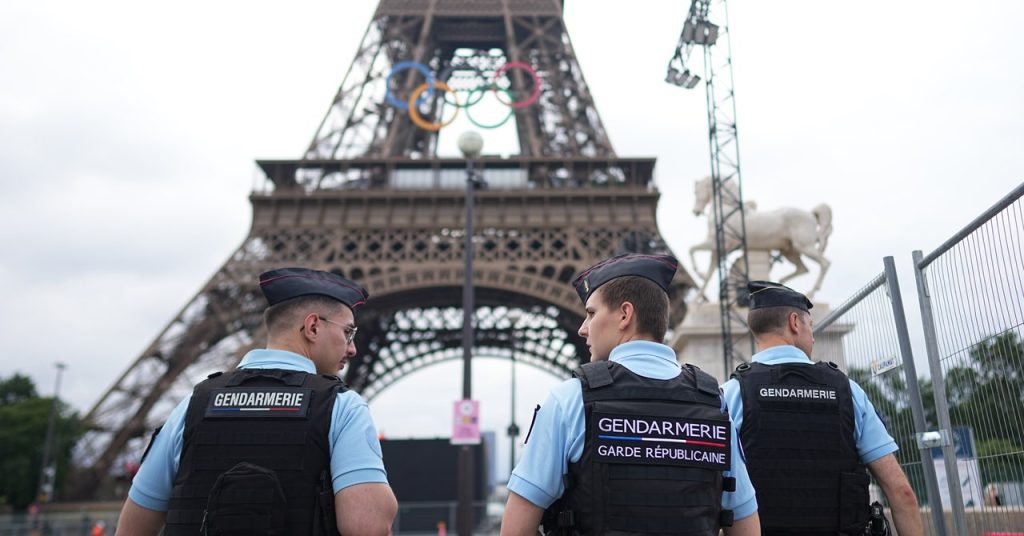### Enhanced Surveillance at the Olympics: A Double-Edged Sword
#### Introduction to Olympic Surveillance
As the Olympics approach, access to certain areas is restricted to those with a personal QR code. Khaki-clad soldiers and advanced algorithms are on standby, monitoring CCTV footage in real-time for specific events like crowd surges, large groups, abandoned objects, weapons, or individuals falling.
#### Transforming CCTV into a Monitoring Tool
“What we’re doing is transforming CCTV cameras into a powerful monitoring tool,”
says Matthias Houllier, cofounder of [Wintics](https://www.wintics.com), one of four French companies contracted to deploy their algorithms at the Olympics. With thousands of cameras, it’s impossible for police officers to react to every camera feed.
#### Wintics’ Journey and Technology
Wintics first gained public attention in Paris in 2020 by gathering data on cyclists to aid in the planning of bike lanes. By connecting its algorithms to 200 traffic cameras, Wintics’ system identifies and counts cyclists in busy streets. When France sought companies to enhance Olympic security, Houllier saw it as a natural progression. “The technology is the same,” he says. “It’s analyzing anonymous shapes in public spaces.”
#### Training and Implementation
After training its algorithms on open source and synthetic data, Wintics adapted its systems to count people in crowds or detect individuals falling, alerting operators when thresholds are exceeded. Houllier emphasizes that there is no automatic decision-making. His team trained interior ministry officials on using the software, leaving the final decisions to them. “The idea is to raise the attention of the operator, so they can double check and decide what should be done.”
#### Privacy Concerns and Alternatives
Houllier argues that his algorithms are a privacy-friendly alternative to controversial facial recognition systems used in events like the [2022 Qatar World Cup](https://www.businessinsider.com/world-cup-monitored-cameras-facial-recognition-tech-qatar-2022-11). “We are not analyzing any personal data. We are just looking at shapes, no face, no license plate recognition, no behavioral analytics.”
#### Opposition from Privacy Activists
However, privacy activists like Noémie Levain disagree. Levain has distributed 6,000 posters warning Parisians about the “algorithmic surveillance” and urging them to reject the “authoritarian capture of public spaces.” She argues that analyzing images inherently involves processing personal and biometric data, equating it to facial recognition technology.
#### Long-Term Implications
Levain is concerned that AI surveillance systems will remain in France long after the Olympics. She believes these algorithms enable broader surveillance, reinforcing existing police biases. “This technology will reproduce the stereotypes of the police,” she says. “We know that they discriminate. We know that they always go in the same area. They always go and harass the same people. And this technology, as with every surveillance technology, will help them do that.”
#### Conclusion
As the Olympics draw near, some Parisians, like Levain, plan to leave the city to avoid the heightened surveillance. Yet, there is a lingering worry about the lasting impact of these technologies. “The Olympics is an excuse,” she says. “They—the government, companies, the police—are already thinking about after.”

1 Comment
AI’s watching athletes now? What’s next, robot referees?!